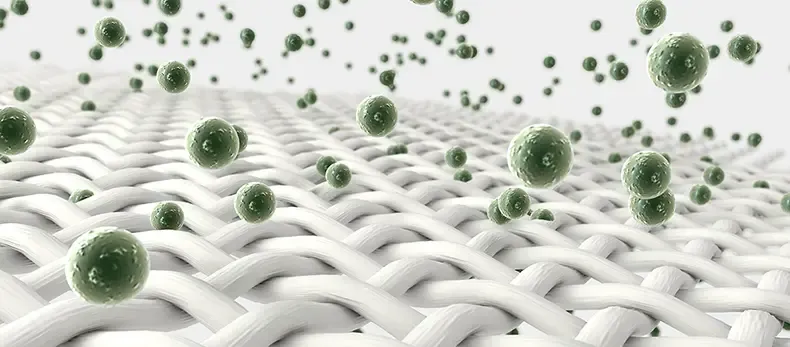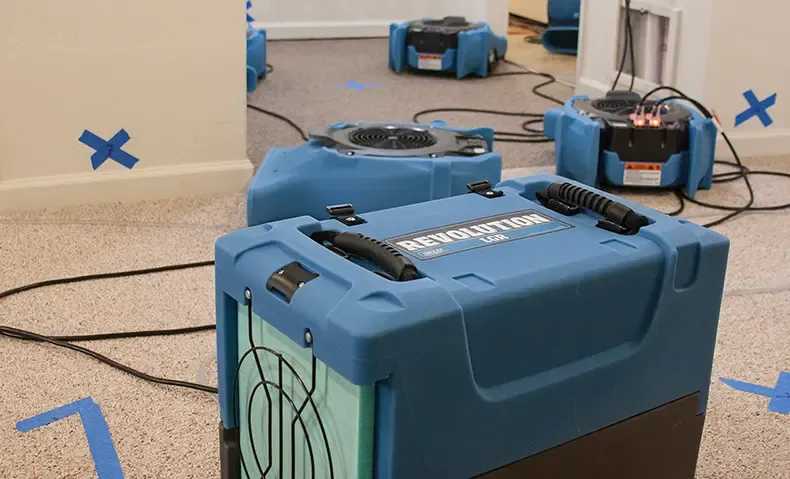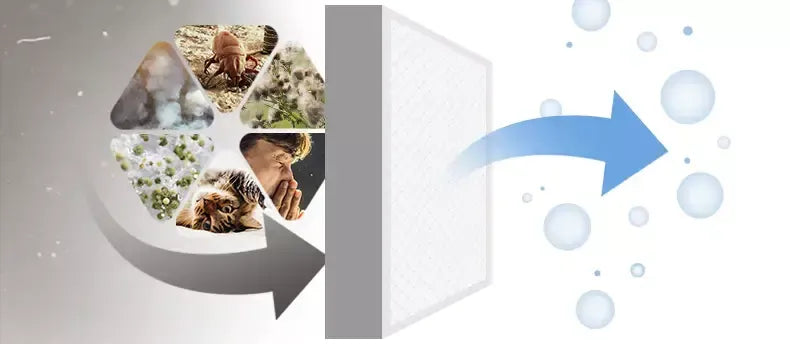HEPA filtration. What does HEPA actually stand for? How do HEPA filters work, and when would I need one? Which kinds of products use them?
This article will explore each of these questions so that you can know exactly what it is and when you may need to use it.
What Exactly Does HEPA Stand For?
HEPA: High Efficiency Particulate Arrestance (or Air) filtration.
So the next obvious question—how big is a micron? (symbol: µ) Well, one inch = 24500 microns. But the best way to answer this is by comparison. This is a short list of common items.
- Bacteria: 1-10 microns
- Very Fine Sand: 65 microns
- Human Hair: 17-181 microns
- Dust Mites: 100-300 microns
- Copier Toner: 0.5-15 microns
- Pollen: 10-1000 microns
- Tobacco Smoke: 0.01-4 microns
- Viruses: 0.005-0.3 microns
{{ wistiaembed('2gdj4a7qdo') }}
How do HEPA Filters Work?
True HEPA filters are usually constructed from borosilicate glass or plastic fibers arranged in a mat of randomly placed fibers. However, HEPA filters do not work like a sieve, which captures particles greater than a specific size and allows the smaller ones to pass through. With a HEPA filter, particles are trapped by sticking to a fiber through diffusion, interception, or impaction.
- Tiny Particles: These are captured through the process of diffusion, which involves the science of Brownian motion, a mechanism that slows down particles as they collide with gas molecules, causing them to stick to the fibers.
- Small Particles: As they follow the flow of air through the filter and pass within one diameter (of the particle) to a fiber, they are “intercepted” and stick.
- Larger Particles: These simply can’t get past fibers without “impacting” them directly and are captured.
- Particles are also collected through electrostatic attraction.

That’s a lot of science! Now, let’s look at some specific situations that would require HEPA filtration.
When is a HEPA Filter Important?
If you or someone in your family suffers from asthma or severe allergies, HEPA filtration can make a big difference since the filters capture pollen, mold spores, fine dust, pet dander, and other allergens and bacteria.
And, if you're unsure about the level of these allergy triggers in your home or office, an air quality monitor is a good way to test it, as well as track them on a daily basis. There are also home tests specifically designed to detect unhealthy levels of mold, formaldehyde, and other irritants, so they can be directly treated.
Some other special circumstances make HEPA filtration important even if you don’t have allergies.
- Water Damage: If you’ve experienced a flood, even from a household appliance leak or overflow, the use of a HEPA filter during remediation will help rid your home of mold spores, bacteria, and other microorganisms that appear as a result of water intrusion.
- Smoke: A fire occurring near or in your home, whether it’s a forest fire or a kitchen fire, can cause smoke particles to accumulate at unhealthy levels. A HEPA filter captures soot and fine ash particles generated by these kinds of fires.
- High Chemical Environments: If you know there is a high volume of volatile organic chemicals (VOCs) in the air due to your home or business location, you will need a HEPA filter that is designed to handle this. These filters include activated carbon impregnated with potassium iodide, potassium permanganate, activated alumina, and/or zeolite.
- Cleanroom Environments: If you are caring for someone who requires a cleanroom environment, there are hyper-HEPA filters that can capture particles as small as 0.003 microns. That includes viruses and other particles smaller than 0.3 microns that HEPA filters are designed to catch.
Of course, if you are concerned about general air quality in your home or office, even without these specific situations, a HEPA filter will definitely improve your indoor air quality. The CDC and EPA have stated that our indoor air is more seriously polluted than outdoor air, and since we are spending more time inside, it makes sense to ensure a healthy indoor environment.
Which Kinds of Products Use a HEPA Filter?
While we tend to think about HEPA filters only in conjunction with air purifiers, there are actually a surprising number of other machines that can use them.
Professionals use dehumidifiers, commercial wet/dry vacuums, and air scrubbers when dealing with water damage restoration or after a fire, to effectively restore affected property.

Others are designed to be used in homes on a regular or daily basis, like vacuums, home air purifiers, and combination air circulators/purifiers. If you’re thinking about a home air purifier, this article highlights some things you should consider when purchasing.
Vacuum cleaners with HEPA filtration are especially important, since all the air entering the vacuum passes through whatever dust and dirt are collected in the bag or bin before being exhausted back into your air. If you have allergies or are sensitive to pet dander, a HEPA filter will capture and hold allergens.
While you cannot use a HEPA filter in your furnace or HVAC system, there are whole-house air cleaners, like this one from Aprilaire, that work with your HVAC to purify your indoor air 24/7. In place of HEPA filtration, a furnace filter with a high MERV rating (13+) comes close and will capture small particles, even some bacteria, with 95% efficiency. This article contains a wealth of information about furnace filters, MERV ratings, and more.
Considering HEPA Filtration?
If you or a family member has severe allergies or asthma symptoms, or you are caring for a loved one who is ill, you may want to consider one or more products with HEPA filtration. A top allergy air purifier is a great place to start.
For better general indoor air quality, our Air Purifier Buying Guide will help you find the right one for your home. Offices can also be sources of allergy triggers, but a personal air purifier like the Compact HEPA Air Purifier or small Personal Air Purifier from Envion may be just the thing to help control them.
A vacuum cleaner with HEPA filtration is another item that can be a very effective tool in controlling allergens in your home and office. There are many styles and sizes available, so you’re sure to find one that will be a perfect fit.
In Summary
HEPA filters are designed to capture microscopic particles at a high rate of efficiency. Using HEPA filtration in homes improves indoor air quality by reducing allergens in the air. Situations like water damage, heavy smoke infiltration, high VOCs, and cleanrooms also require the use of HEPA filters for remediation.
More Information?
For additional information and guidance in choosing an air purifier, vacuum cleaner, or other HEPA filter product, give our customer service folks a call. They are knowledgeable and will be glad to assist in finding the right solution for you. Just call 800-934-9194 for help.


